by Eric D. Morton
For years, website owners have had to use care as to the content that they post on their websites. I have admonished clients to never use photos, content, music that does not belong to you or for which you have a license. With the extensive use of social media, business owners have further potential headaches.
Copyright law prohibits the use of the “works” of another person without permission. Works mean any artistic expression, including music, photographs, paintings, sculptures, and writings. Works that are created using another work are derivate works and considered an infringement of the original work. (See my article about last year’s Prince/Andy Warhol case). Under the terms of the U.S. Digital Millennium Copyright Act, a Federal court can award tens of thousands of dollars in damages and attorneys fees and costs for a single infringement.

Almost every business with an online presence is on X (formerly Twitter), Facebook, Instagram, etc., etc. Unfortunately, many business owners do not take their company’s use of social media seriously. Businesses owners and employees frequently think of their social media accounts in same way they think of their personal social media. Companies often let a junior employee handle social media posts with little supervision or guidance. The result is that the unsupervised, junior employee can get the company in trouble. Social media posts for a business is commercial advertising and are subject to the same laws and rules as any commercial advertising.
Copyright owners now have increasingly sophisticated tools to find infringing content online. Web crawlers find music, video, photos, celebrity likenesses and almost any other work. Copyright owners are also more sophisticated. They invariably register their works with the U.S. Copyright Office (which gives them standing to sue in U.S. District Court). Copyright owners then hire law firms that specialize this type of infringement. Those firms contact businesses and make unreasonable demands of thousands of dollars for the inadvertent use of even a single photograph. Copyright infringement has become a legal cottage industry.
There has been an uptick in infringement cases arising from businesses’ social media. A Chevy auto dealer in the Midwest posted a video of a Chevy truck driving out of tornado. The dealer posted the video on its Facebook page with a musical accompaniment. The person who took the video sued the dealer for copyright infringement. The dealer tried to defend the use of the video by saying that it was fair use. However, the court disagreed. The problem was that the dealer was using the video for commercial purposes. In other words, its was used for advertising. No matter how a company tries to characterize what it posts on its social media, it is commercial advertising.
There are other examples of infringement, such as photographs copied and pasted on social media pages, background music used for videos. Increasingly, web crawlers will find infringing works on social media that were posted years earlier. The running of the statute of limitations for copyright infringement doesn’t start until the owner discovers the infringing use.
What to do?
- Know your social media. Know all of the social media accounts that your company owns and keep track of them. Visit them regularly and know what is being posted.
- Have guidelines for social media posts. Make clear that no content is to be posted on social media that is not generated by your company or used with a license from the owner of the content. That cute cat video you post could get you sued.
- Do not generate false information. In addition to a strict policy of non-infringement, do not allow any defamatory posts about competitors or any false testimonials or any information that is not accurate.
- Close accounts you don’t use. Some companies stop using social accounts but don’t close them. This leaves content on the site for years and leaves the company exposed. It is also a poor advertising practice since those out of date posts make for a terrible image for the company.
- Delete anything suspicious. Immediately delete any content that may have been used without permission.
- Do not give anyone administrative control. Do not give any employee administrative control over any social media account. Maintain control over passwords and users.
Social media is commercial advertising. It can be beneficial to a company but it should be used seriously.
Eric D. Morton is the principal attorney of Clear Sky Law Group, P.C. He can be reached at 760-722-6582, 510-556-0367, and emorton@clearskylaw.com.


